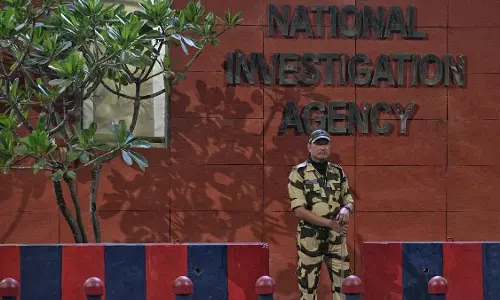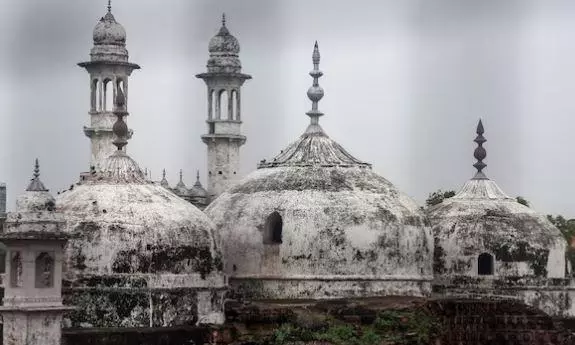
ASI seeks extension for Gyanvapi mosque survey report submission
text_fieldsNew Delhi: The Archaeological Survey of India (ASI) has requested a 15-day extension to finalise its report on the comprehensive survey conducted at the Gyanvapi mosque complex.
The survey, mandated by a Varanasi court to investigate the potential presence of a Hindu temple beneath the mosque, spanned over 100 days and has now concluded.
The court in Varanasi is set to deliberate on the plea for the extended deadline at 2 pm.
Initially scheduled to submit their report on the previous Monday, the ASI had been granted an extension on November 2, citing the need for additional time to compile and organise the findings obtained during the survey.
The scientific investigation conducted by the ASI centred on determining whether the 17th-century mosque was constructed atop a pre-existing Hindu temple. This survey was initiated following an order from the Allahabad High Court, which upheld the necessity of the investigation in the interest of justice, stating it would serve the interests of both sides involved.
However, objections were raised by the mosque management during earlier proceedings. They alleged that the ASI, in conducting the survey, engaged in excavation activities within the mosque complex without proper authorisation. The mosque committee further highlighted concerns about debris accumulation near the structure's western wall, raising fears of potential structural damage.
The mosque committee had also appealed to the Supreme Court against the Allahabad High Court's directive which, it argued, would violate the status quo as ordained in the Places of Worship Act of 1991 which prohibited any change to the status quo of places of worship as of 15 August 1947, other than Babri Masjid.
Despite objections, the Supreme Court, on August 4, declined to intervene and halt the High Court's order for the survey to proceed.
The Supreme Court, led by Chief Justice DY Chandrachud, specified that the ASI must refrain from invasive actions during the survey, explicitly prohibiting excavations, as mandated by the Varanasi court. The directive emphasised the use of non-invasive techniques throughout the investigation.
The origin of the legal dispute stems from a petition filed in August 2021 by five Hindu women seeking access to the Shringar Gauri shrine within the mosque complex. Hindu activists contend that a temple stood at the site before the mosque's construction in the 17th century, alleging its demolition under Mughal emperor Aurangzeb's decree.






















